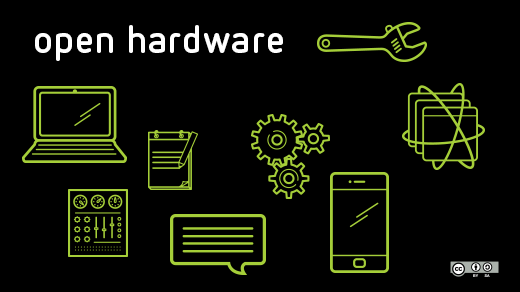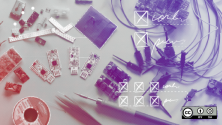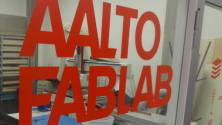 When's the last time you tinkered with something? Maybe it was someone else's code, maybe it was a project you found on a forum. Were you curious enough to dive in, or did you just toss the idea to the wayside?
When's the last time you tinkered with something? Maybe it was someone else's code, maybe it was a project you found on a forum. Were you curious enough to dive in, or did you just toss the idea to the wayside?
Some people continue to practice the craft of tinkering, and I would like to introduce to you one such person. Meet Jezra Johnson Lickter, certified code and material tinkerer. And while some of his projects include familiar open hardware such as the BeagleBone or Raspberry Pi, how do cigar boxes and random Iron Maiden songs make their way into the mix?

Please introduce yourself.
Hello, my name is Jezra Johnson Lickter and I like to make things with code, or wood, or metal, or fabric, or whatever I happen to have in the workshop. Hacking on code and maintaining servers for the fine people at National Novel Writing Month pays my bills and helps me sleep at night, knowing that I'm making a difference in someone's life as well as making the world a more vibrant place.
You describe yourself as a tinkerer. Can you mention a few of your favorite projects?
One of my favorite projects was the NaNoBox, which used a cigar box for a case and a Raspberry Pi to pull data from the NaNoWriMo website and then illuminate LEDs within a cigar box, as well as control a voltmeter using PWM (pulse width modulation). The NaNoBox existed for a few weeks and then was disassembled. The ephemeral nature of the project is something that gives me fond memories of "hacks-gone-by."
The Raspberry Pi from the NaNoBox made its way into the Talking Toaster (another favorite project), which doesn't make toast anymore. However, the toaster does contain a speaker, amplifier, and a motion detector. When the toaster detects motion, it will play a random audio clip from a directory filled with audio clips that I pulled from movies or that people recorded and sent to me. The buttons on the toaster are also wired to perform various actions when pressed. For instance, sending a command to my media machine to queue a random Iron Maiden track.
The rotary phone connected to a BeagleBone, which would send commands over the network when certain numbers were dialed, is definitely on the "favorites" list. Sadly, that machine is no longer with us.
What does it mean to you to be able to tinker?
In the early days, humans were cold and scared, but by taking what was available in our surroundings, we were able to create shelters, and tools, and fire-starting equipment. Now look at us. We have sent humans off of our planet to stand on the moon. We have an information network that passes information at the speed of light all around the planet. None of this would have been possible if it weren't for the desire of humans to take what we have and make something new.
Tinkering, to me, is a basic part of being human. It is taking things apart to see how they work. Tinkering is making things do what they weren't designed to do.
One aspect of the open source approach is that it allows anyone with an interest to change or improve upon the open source code. How important is it to you to be able to tinker in the computing field (e.g., code and hardware)?
It is extremely important, at least as far as code is concerned. The reason that I tinker is to make something more that it previously was, or to make it do what I want it to do. So many of the devices available today, especially in the mobile market, are anti-tinker. You get what the manufacturer wants you to have and you are limited to doing only those things that the manufacturer wants you to do.
Fortunately, there are people with far more patience than I have, who are finding ways to circumvent the artificial locks on devices and thus granting real ownership to people who have purchased a device.
What would you say to encourage anyone who perhaps wants to tinker but is afraid of making things worse, not better?
You can hit rocks together and smash your fingers, or you might be able to start a fire and keep yourself warm. Making things worse is always a possibility, but the payoff is usually worth the risk. No one knows what they can do until they try.
There will always be naysayers who will ask, "Why bother doing that?" and they will spout off their justification for not doing something in the form of some jibber jabber like, "Someone already did it," or "Leave that to the professionals," or some other pointless waffling. The naysayers who try to talk you out of trying to do something new? They are the ones who tried, failed, and never tried again. Don't be like them.
If anyone wants more information about you or your projects, where should they look?
The Internet! More specifically, my website. Now quit reading, and go make something!







Comments are closed.